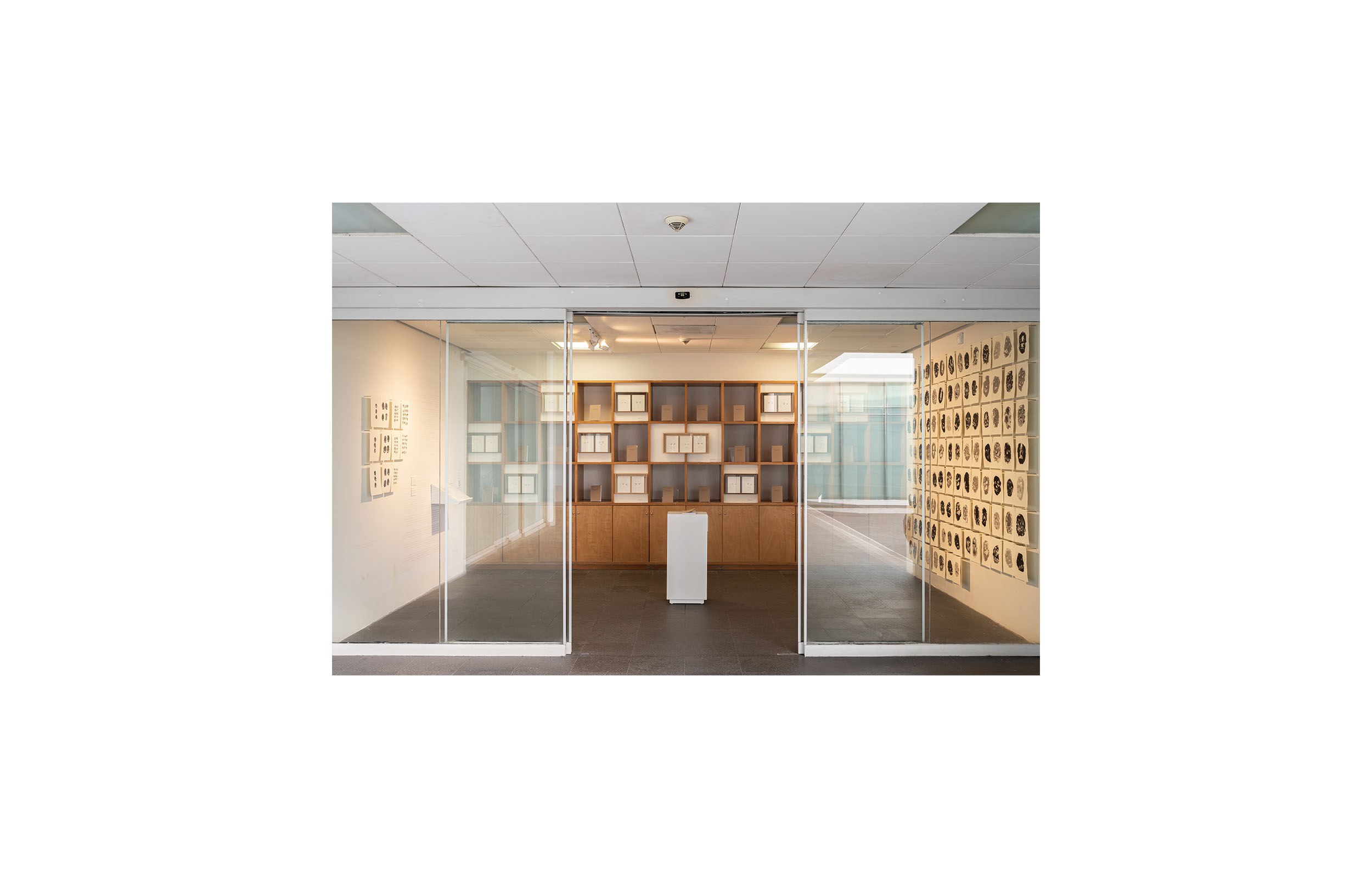
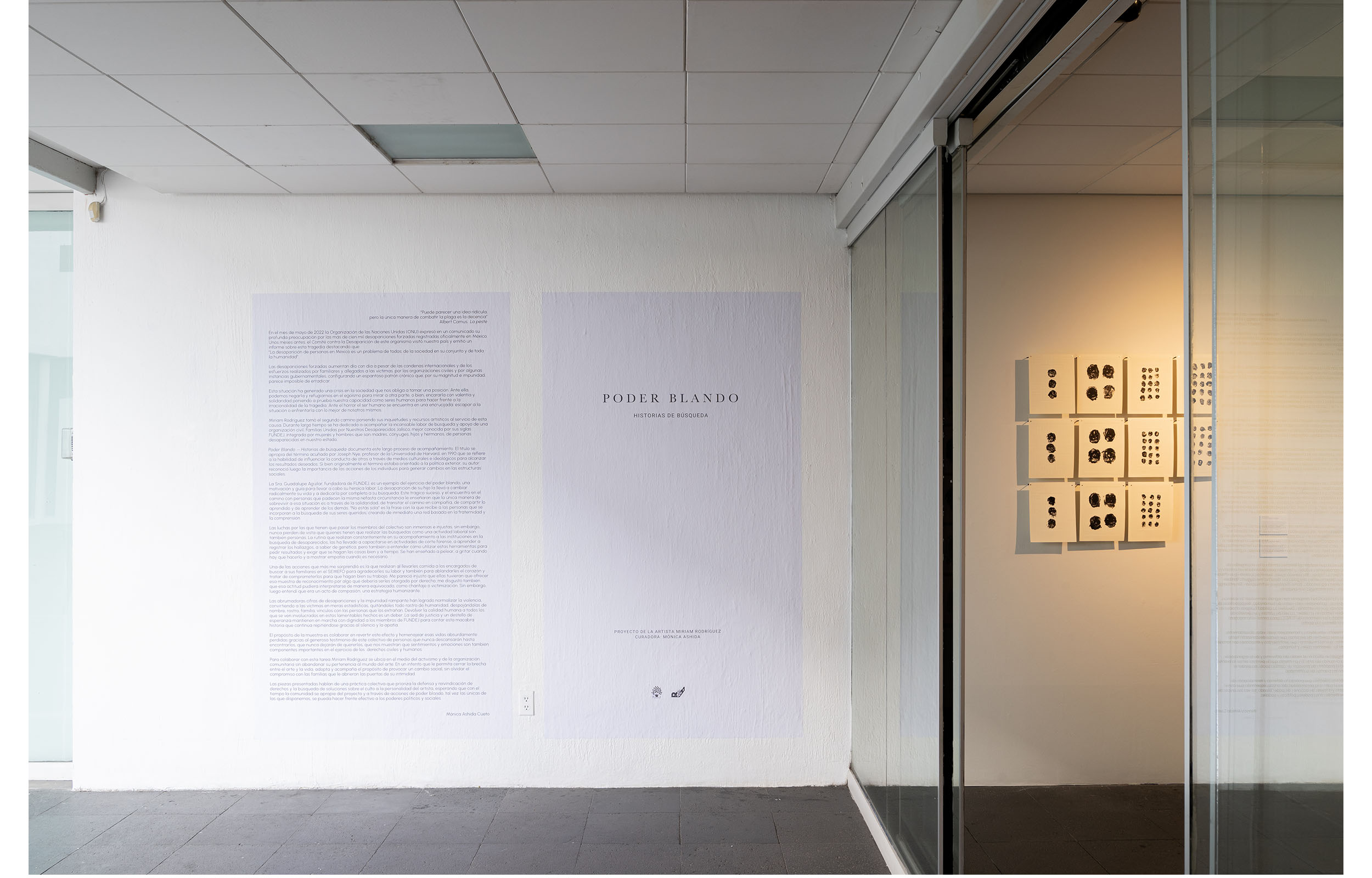
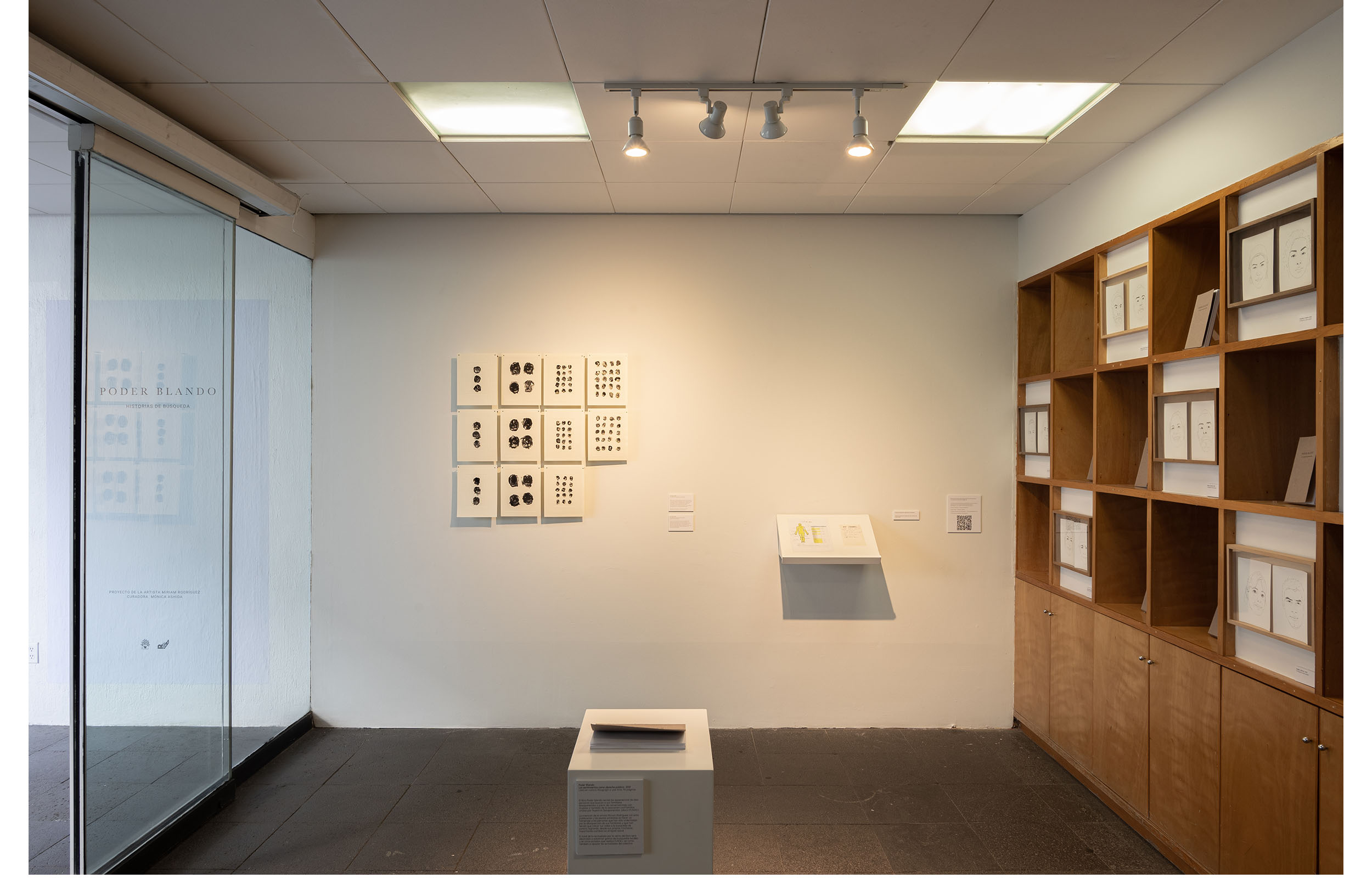
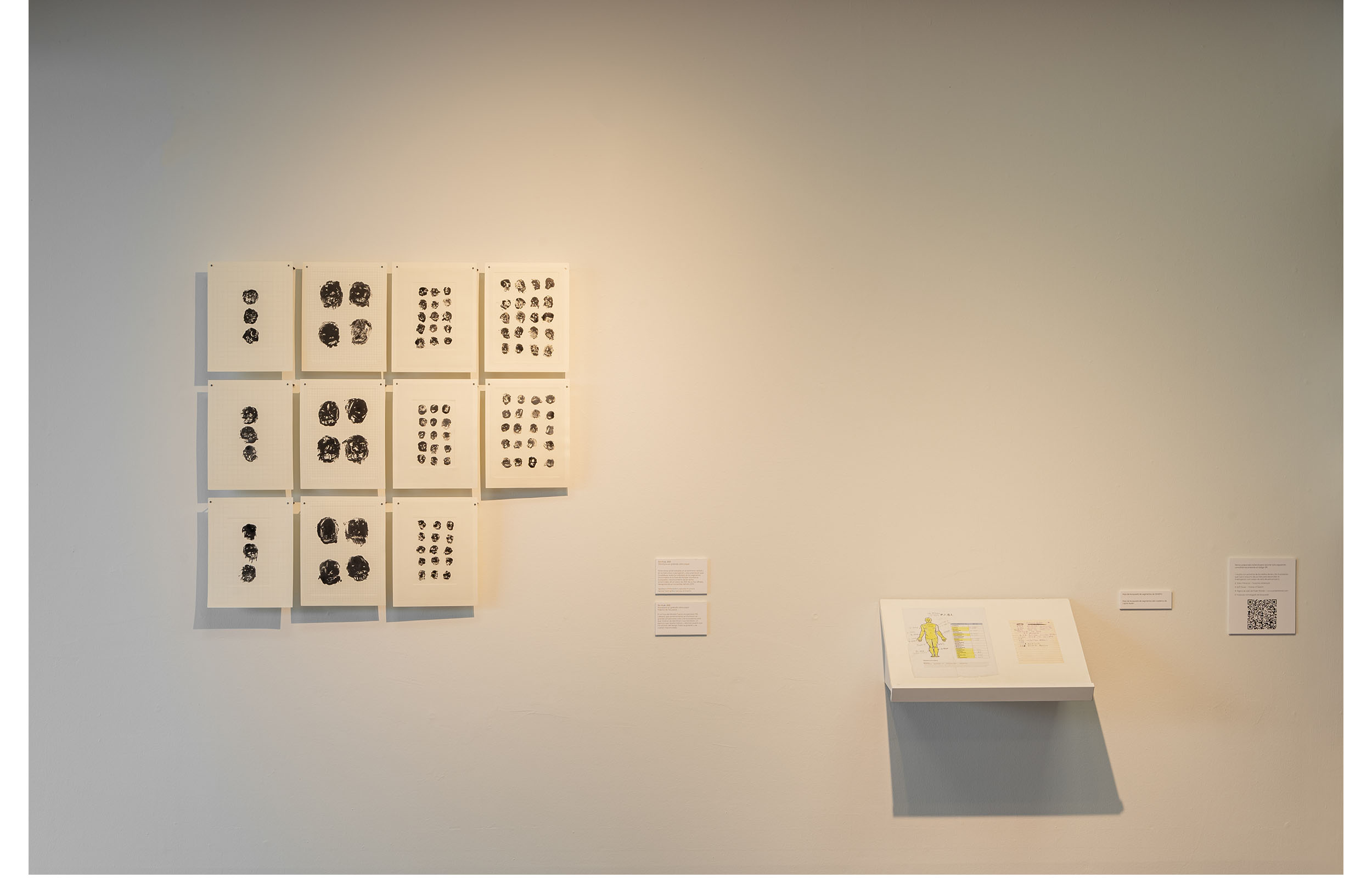
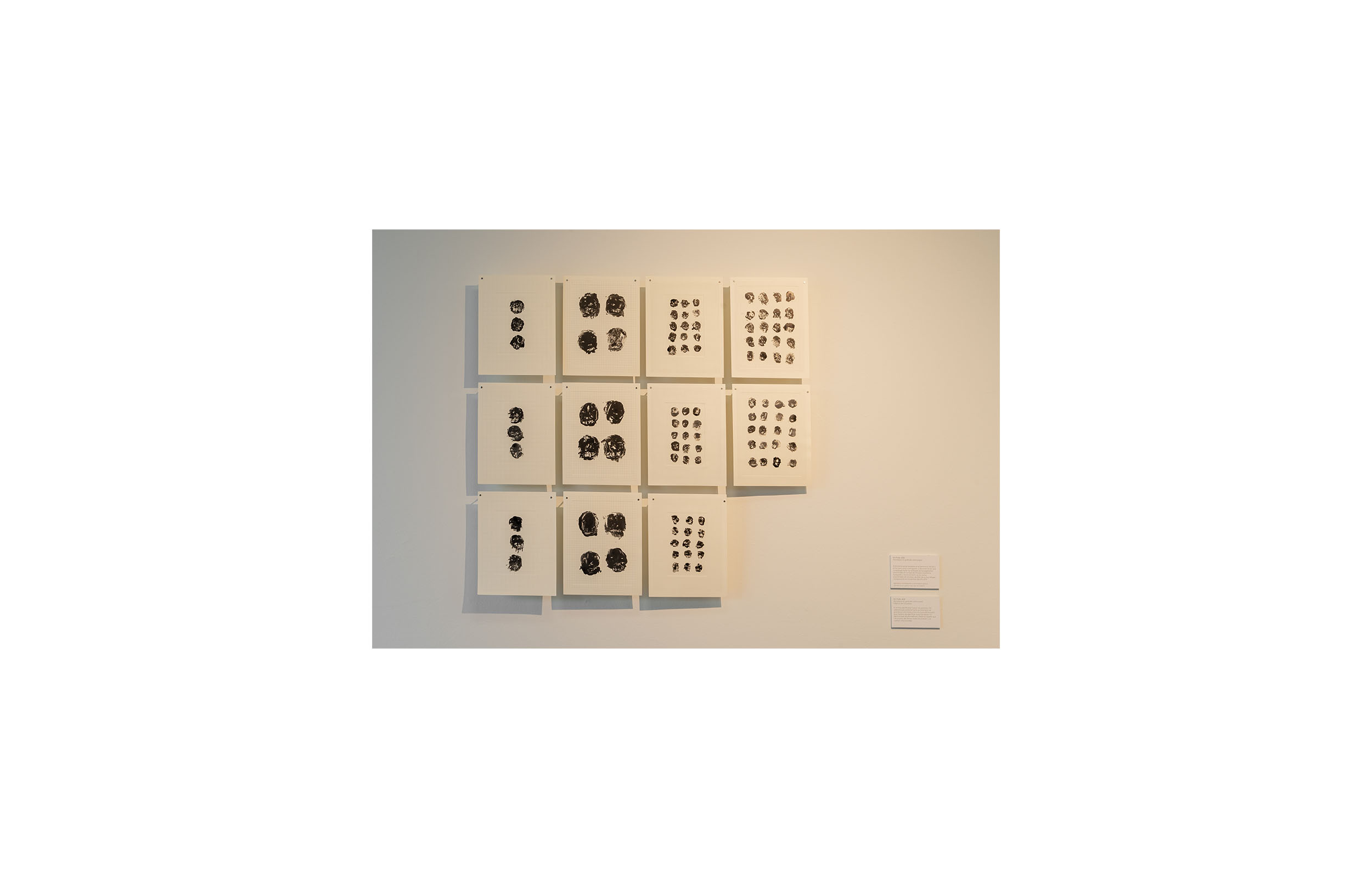
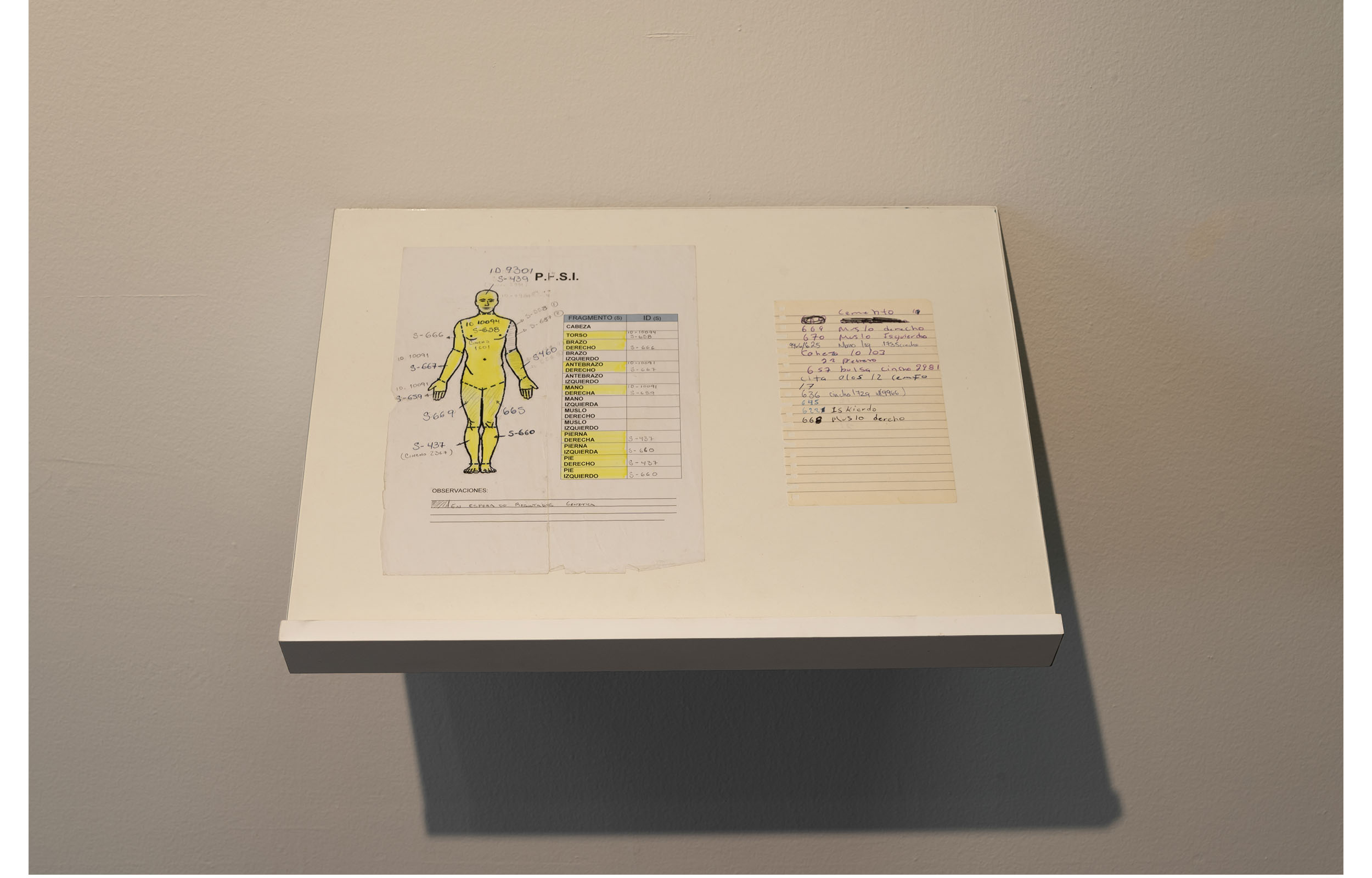
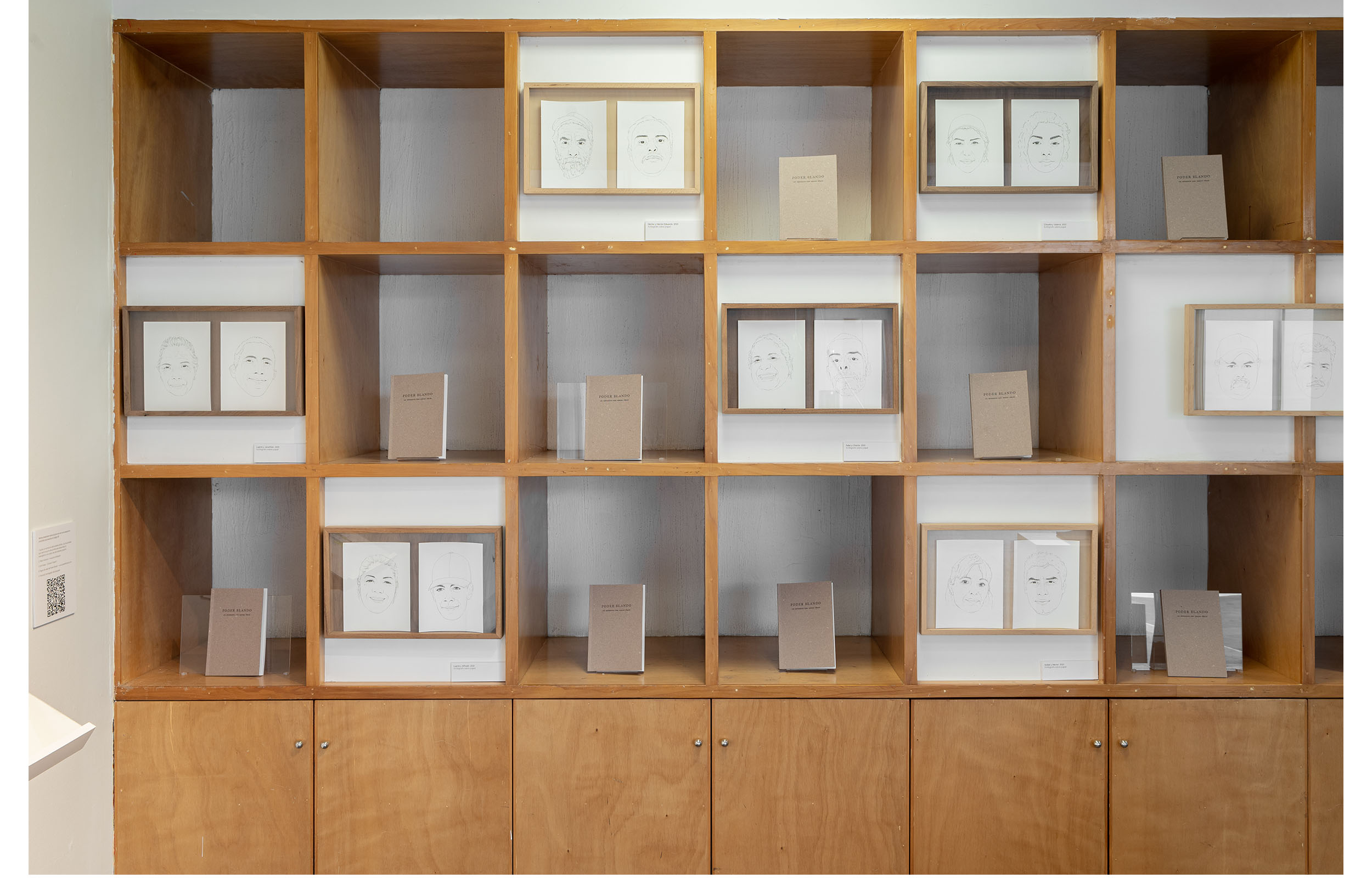
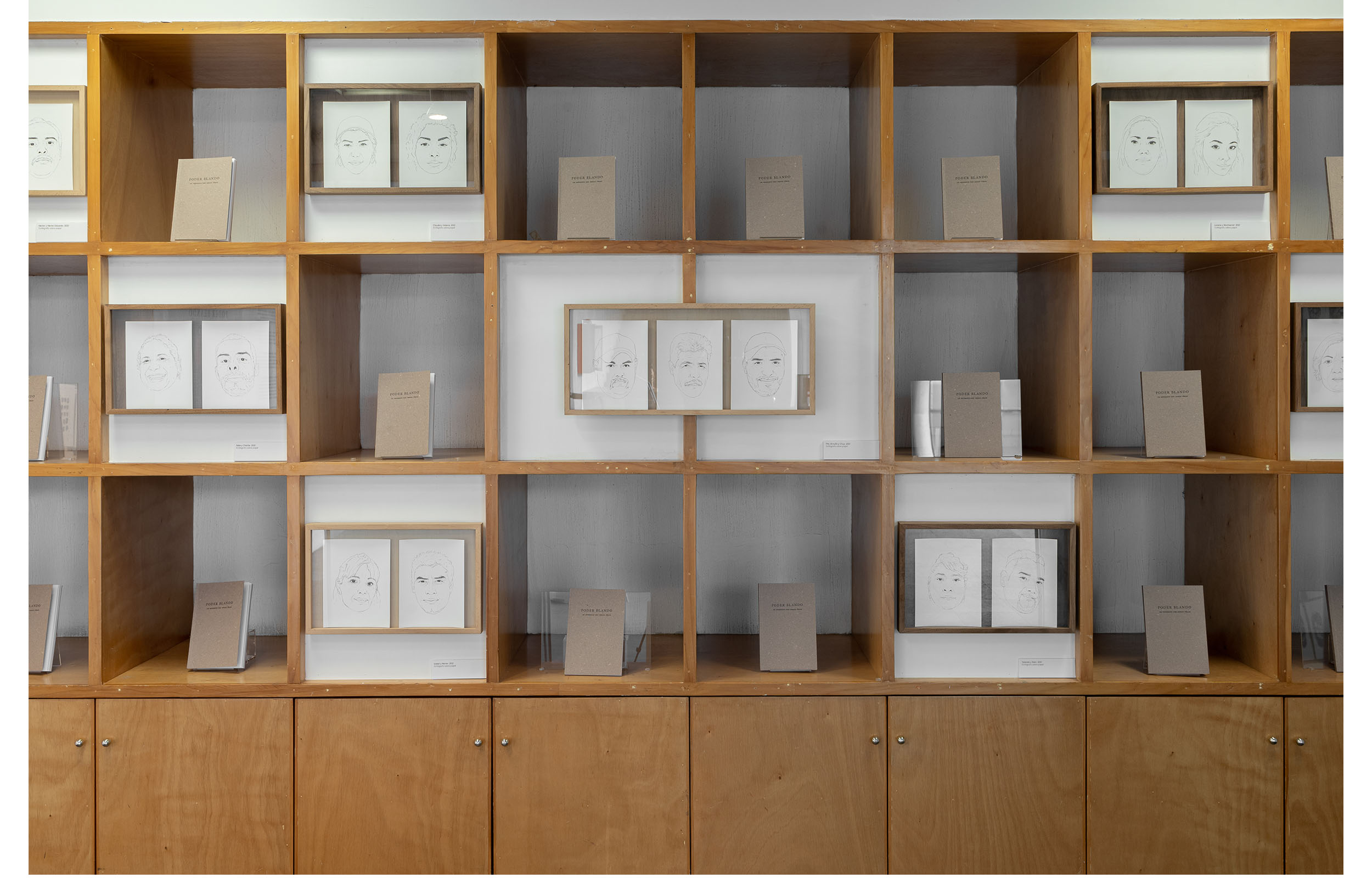
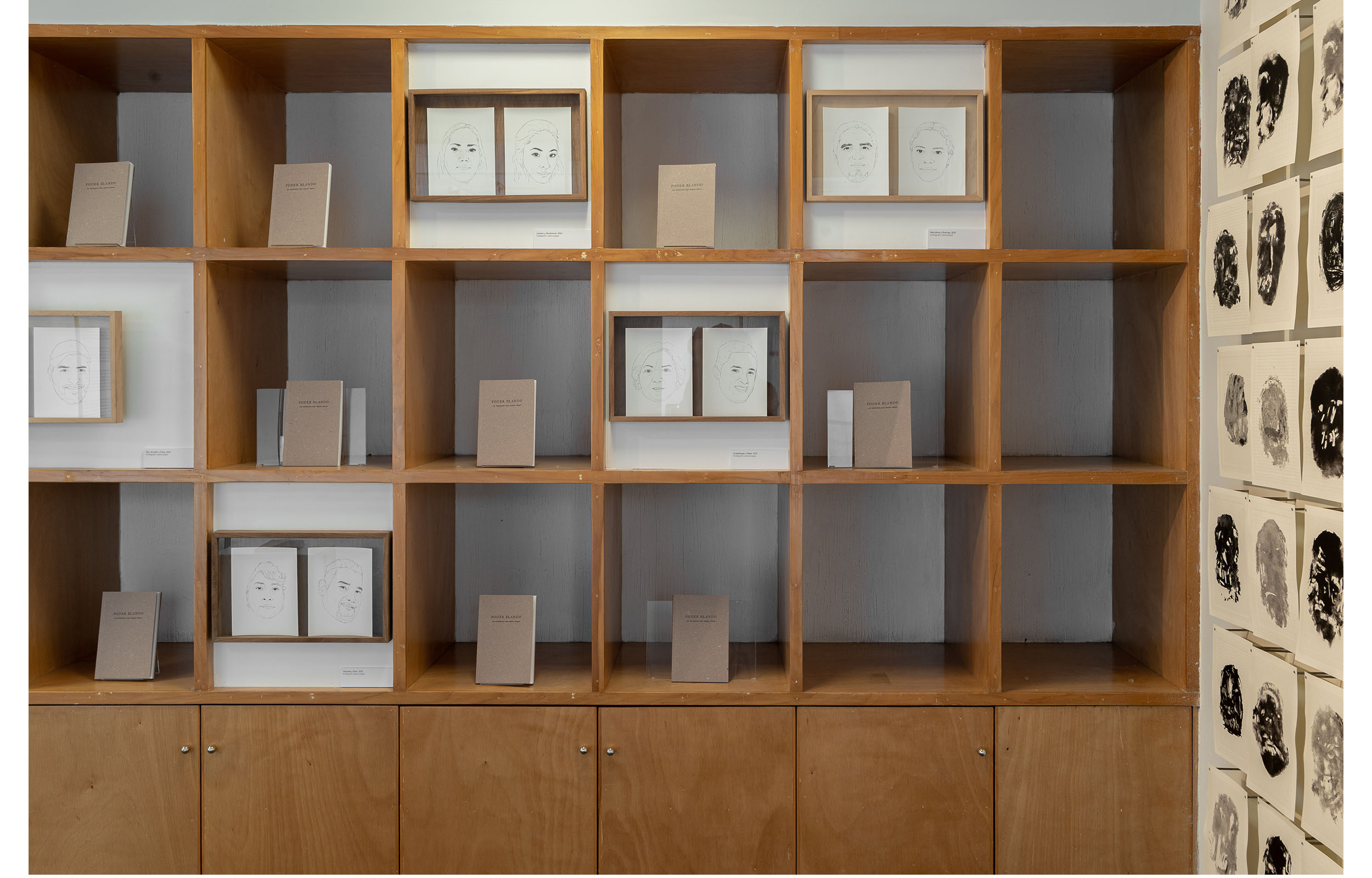
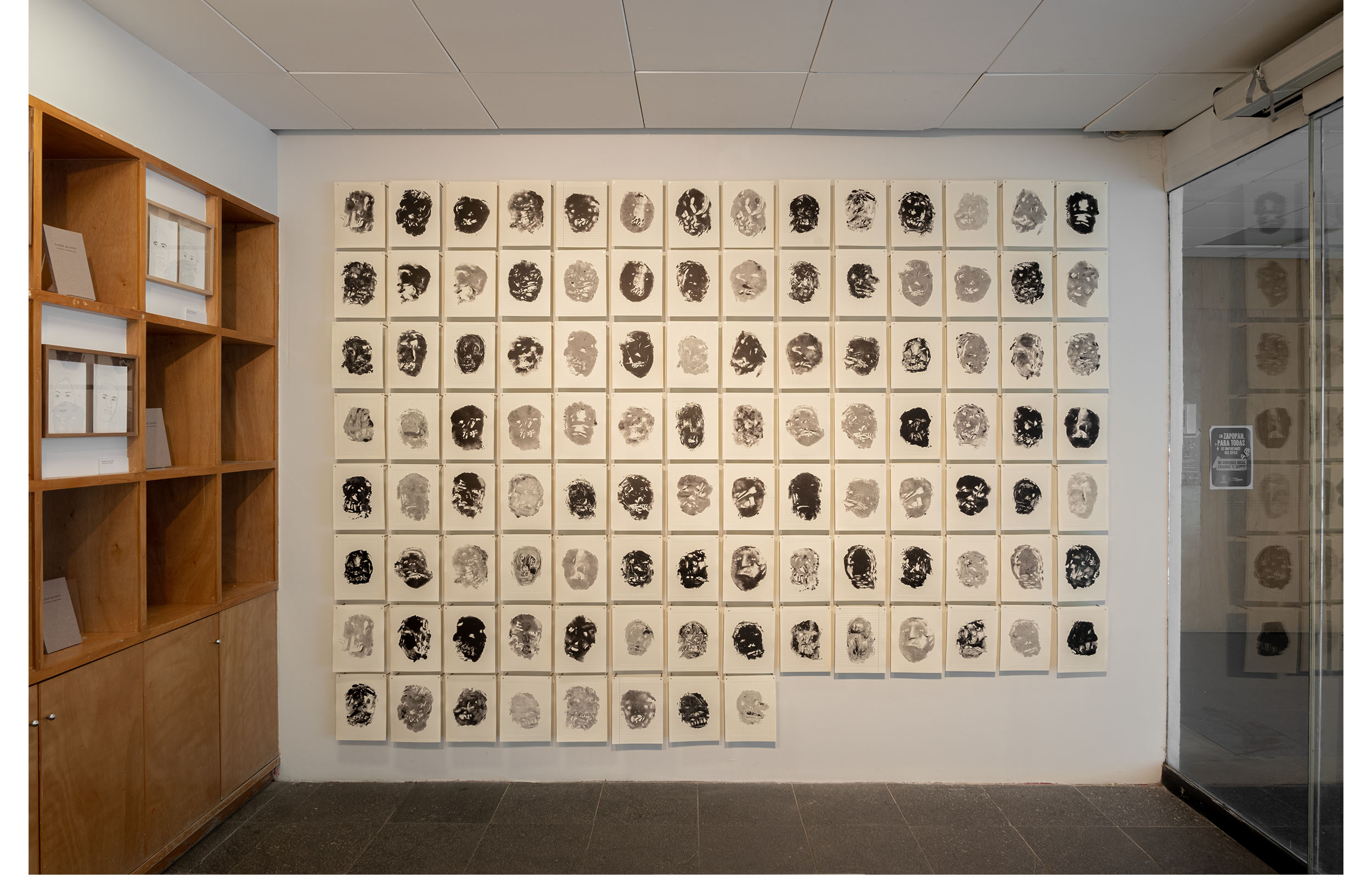
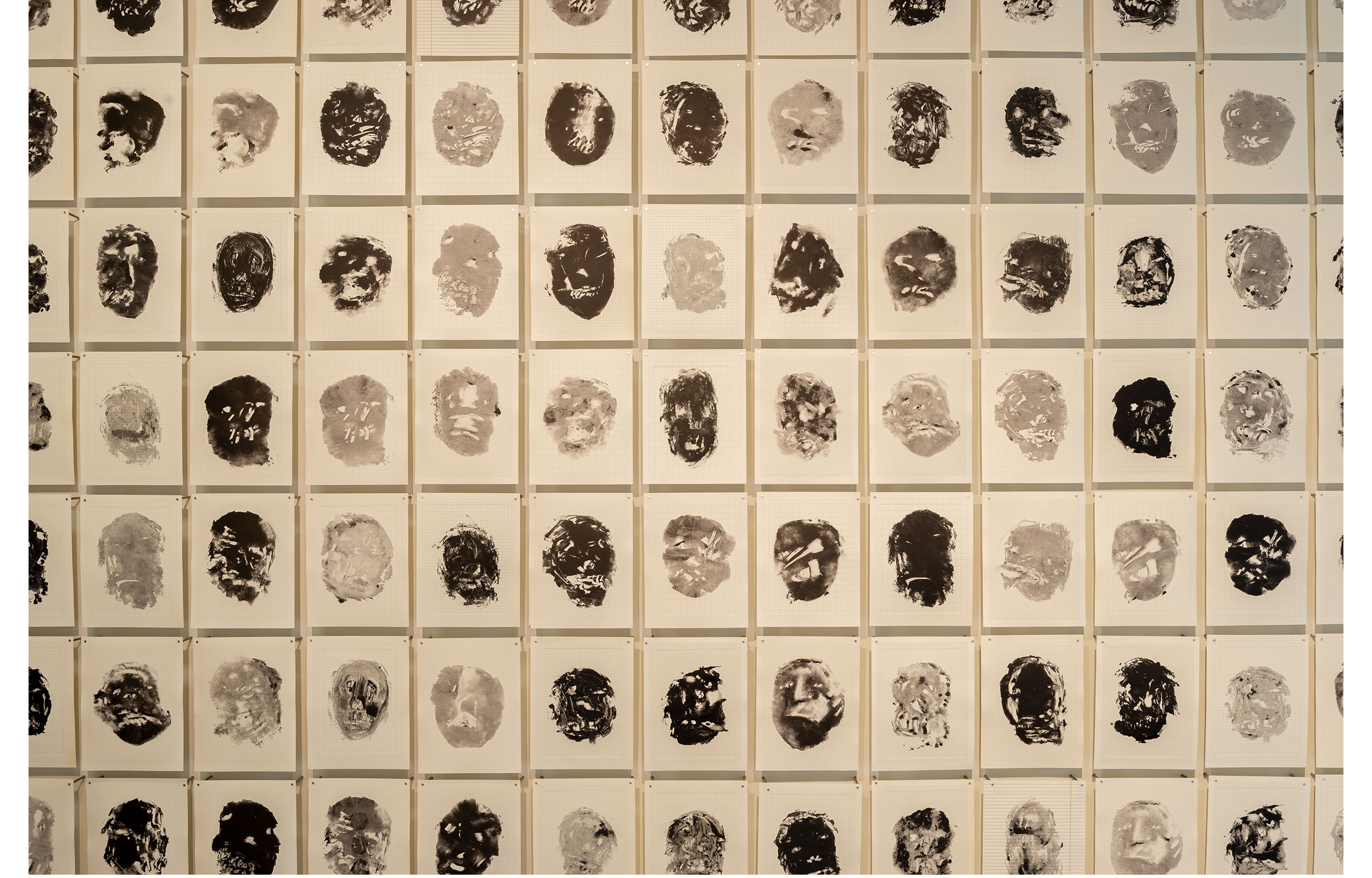
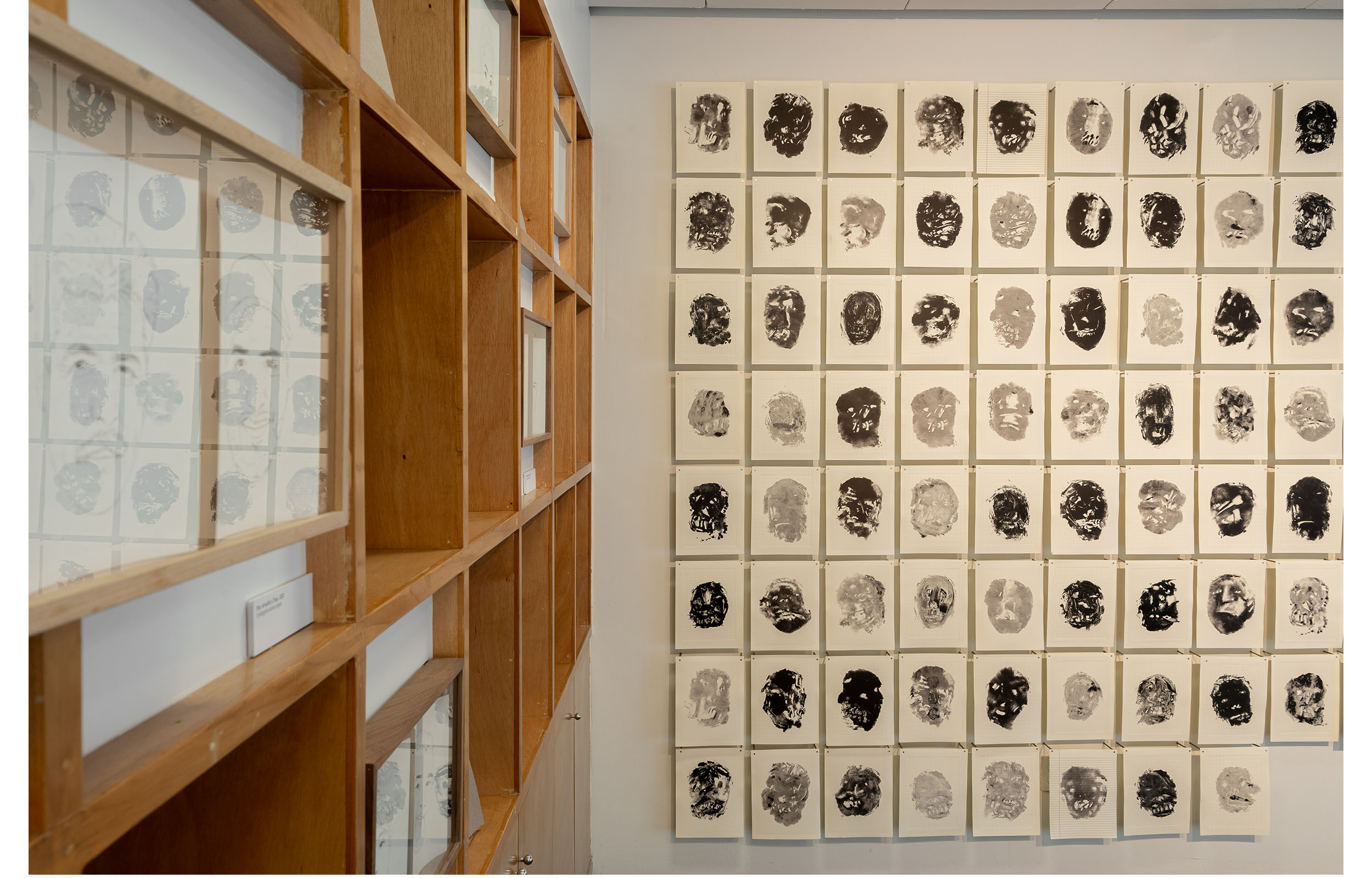
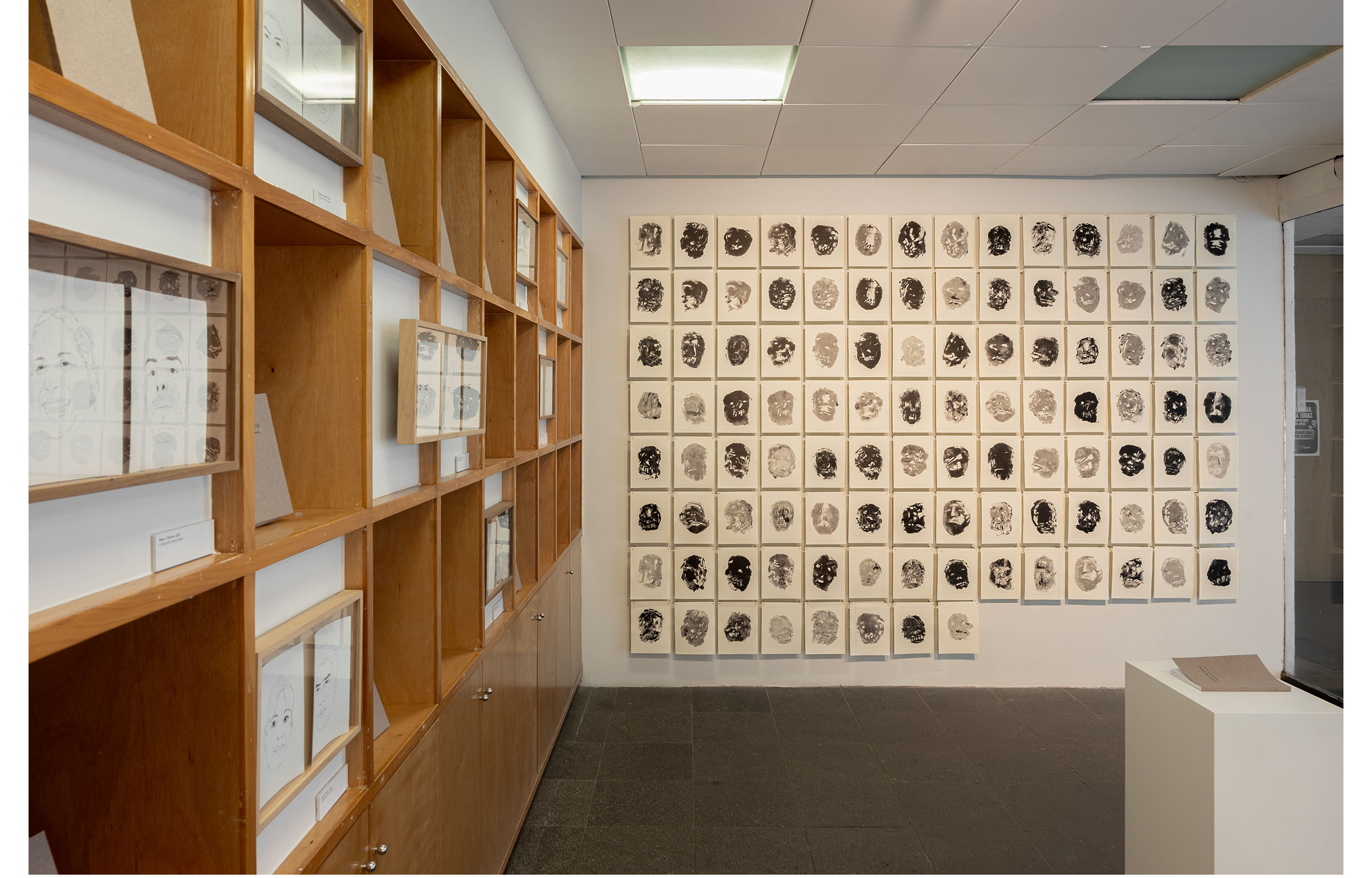
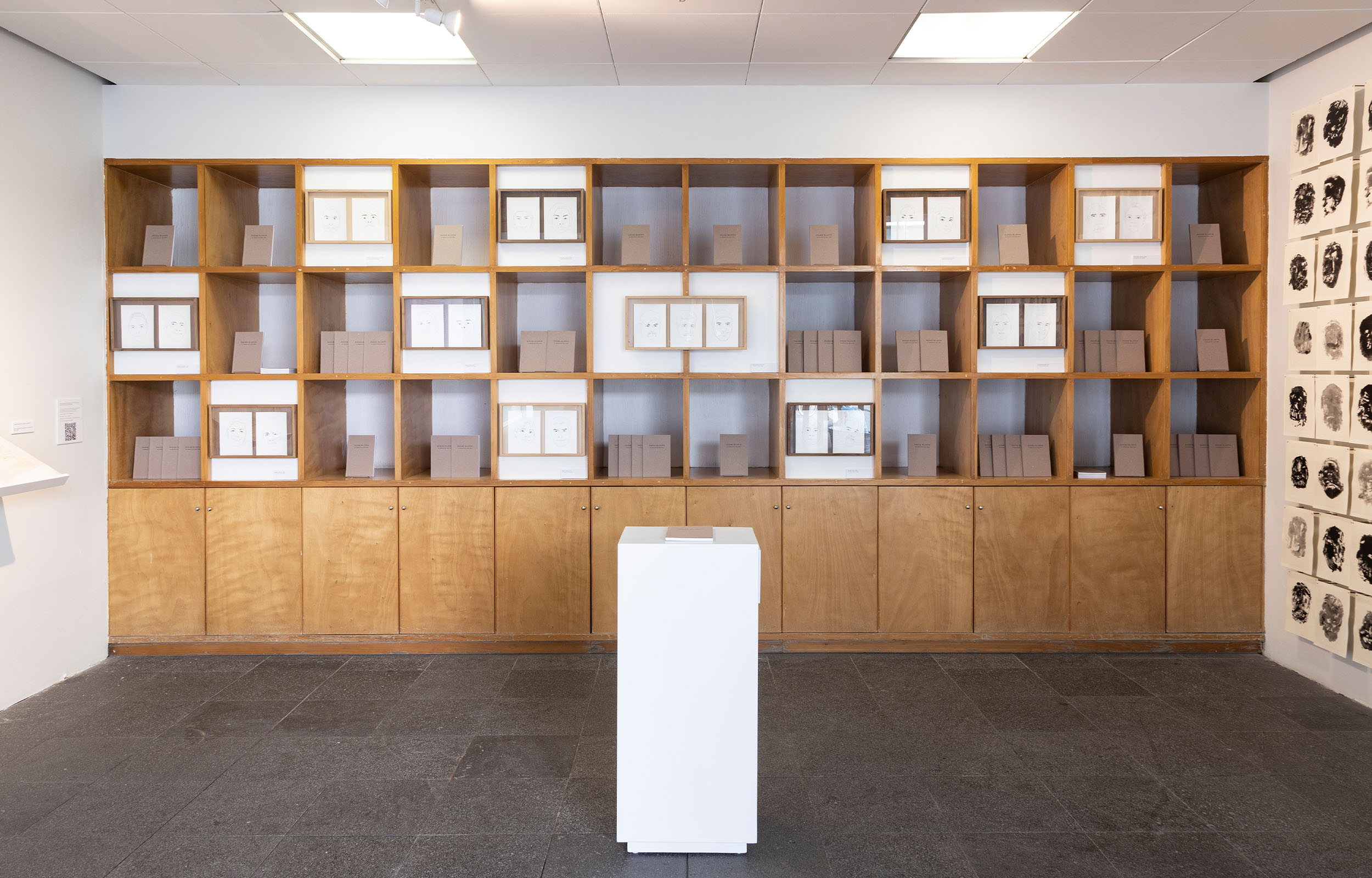
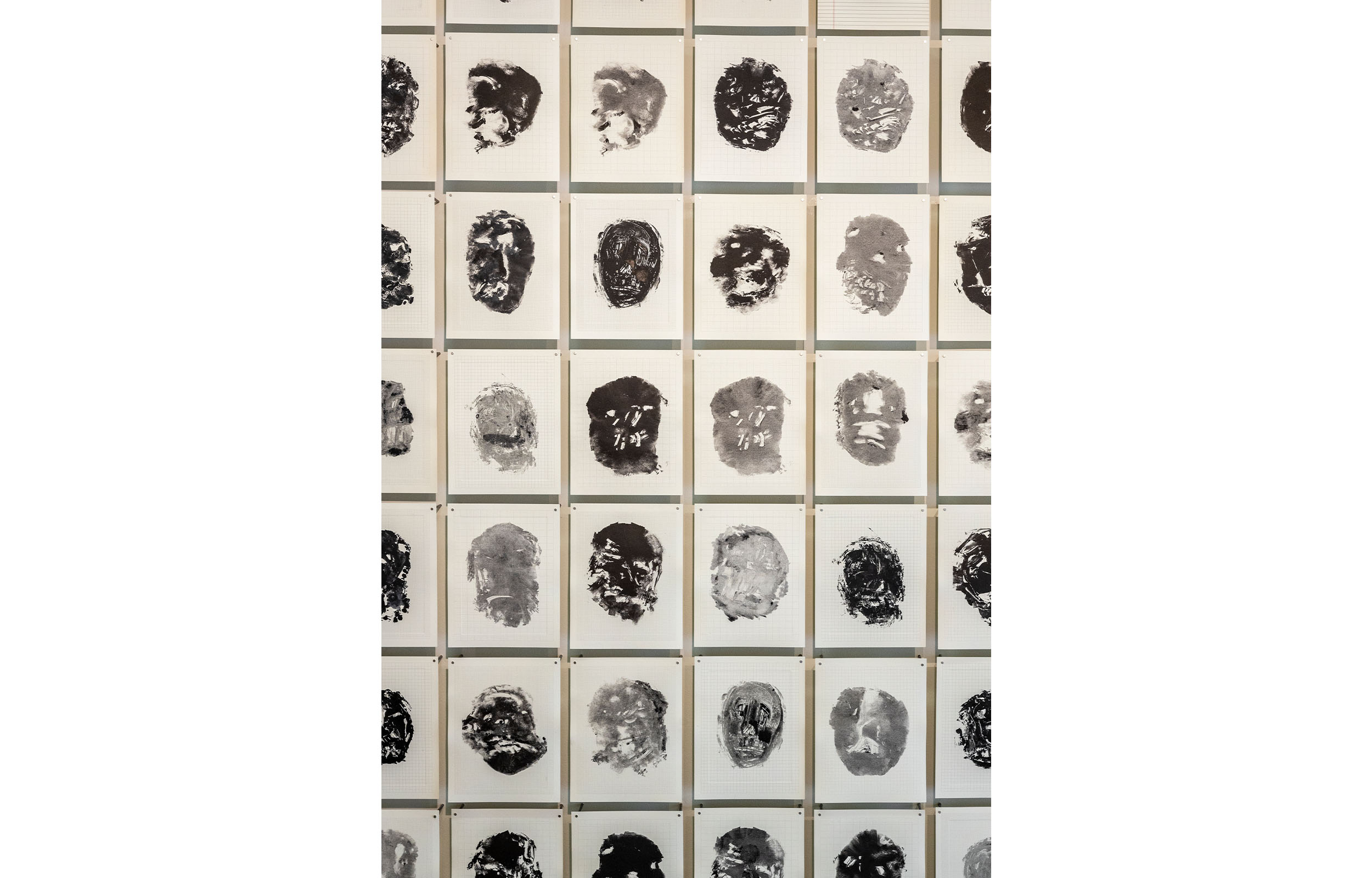
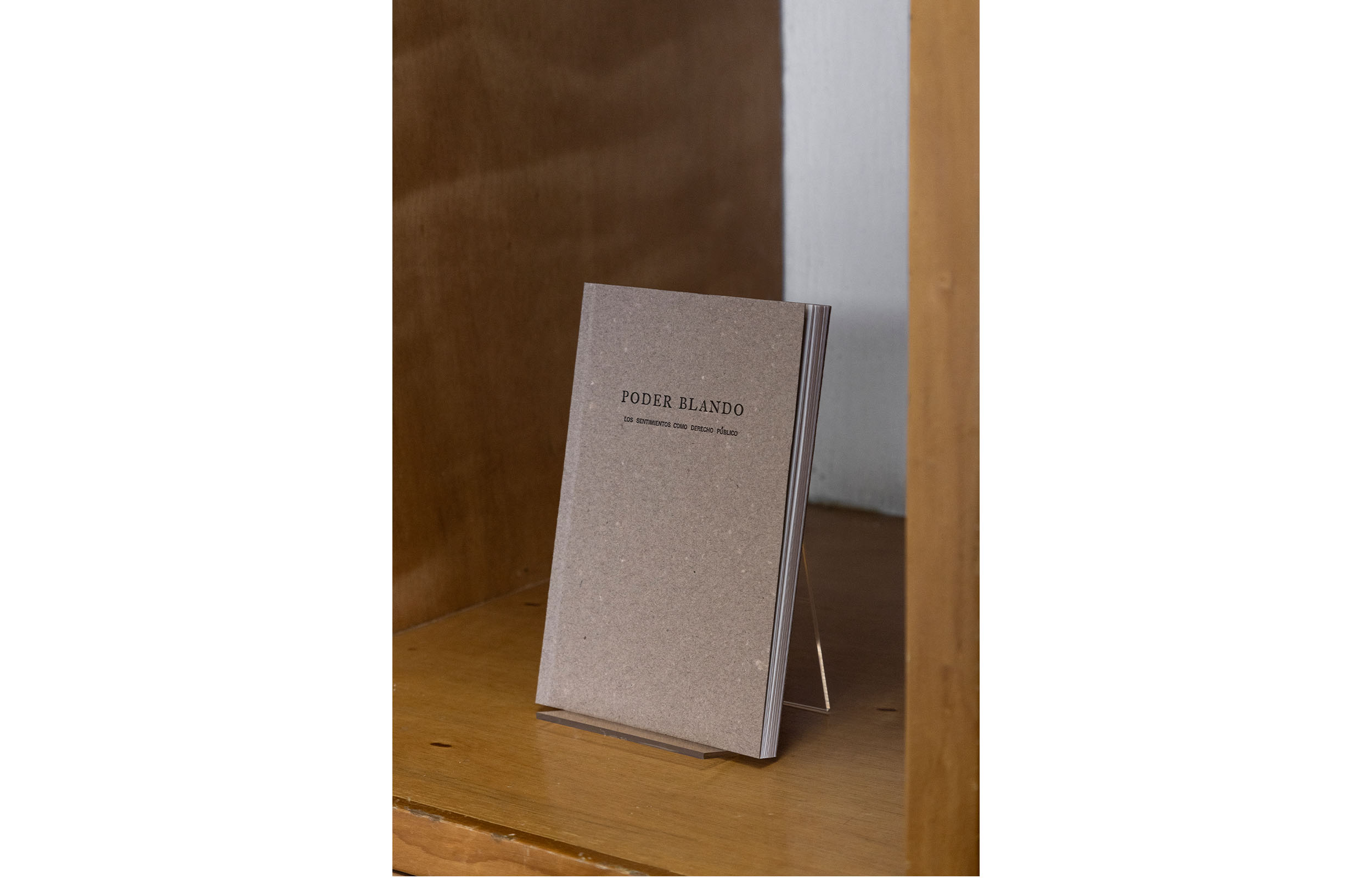
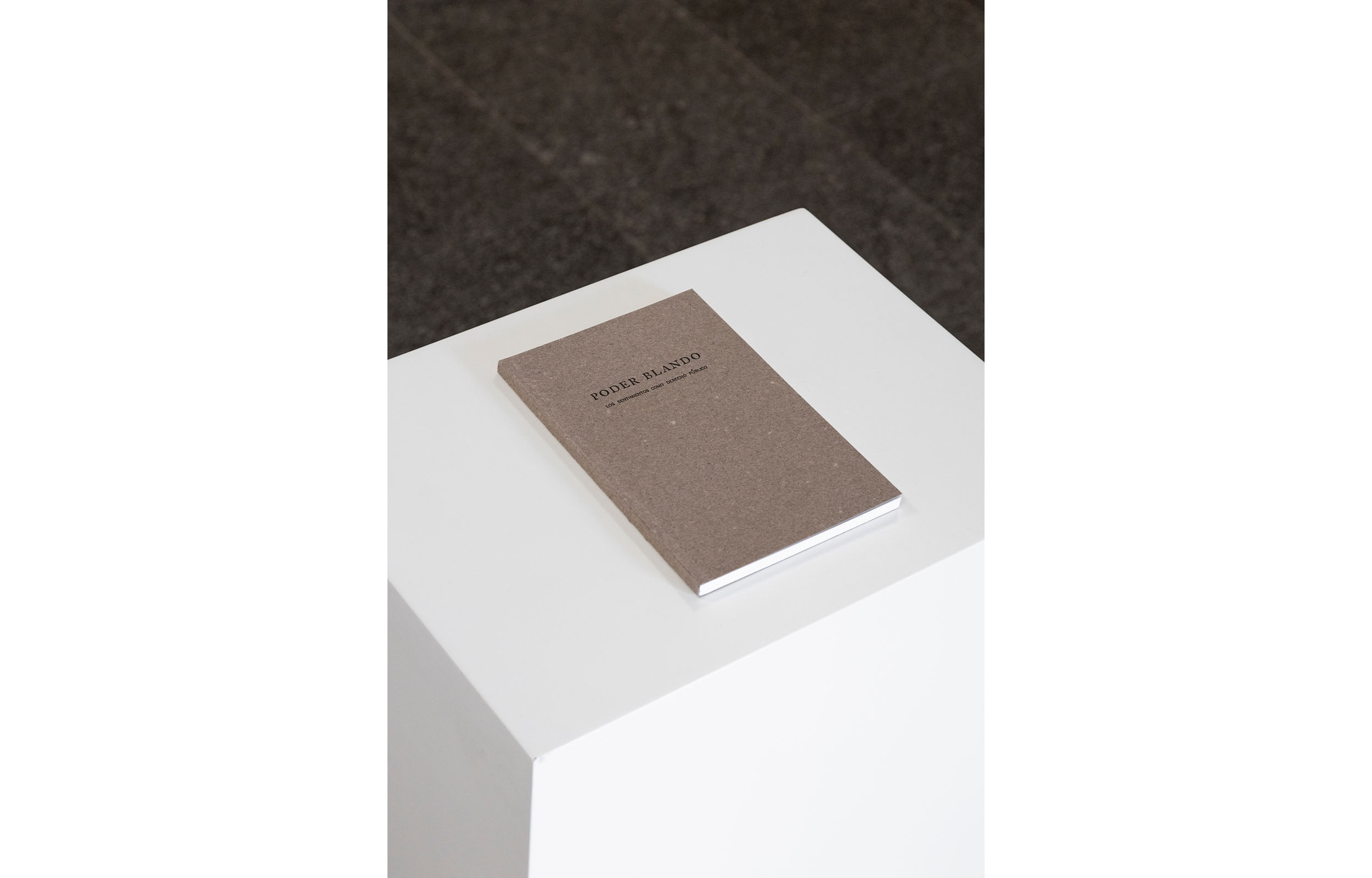
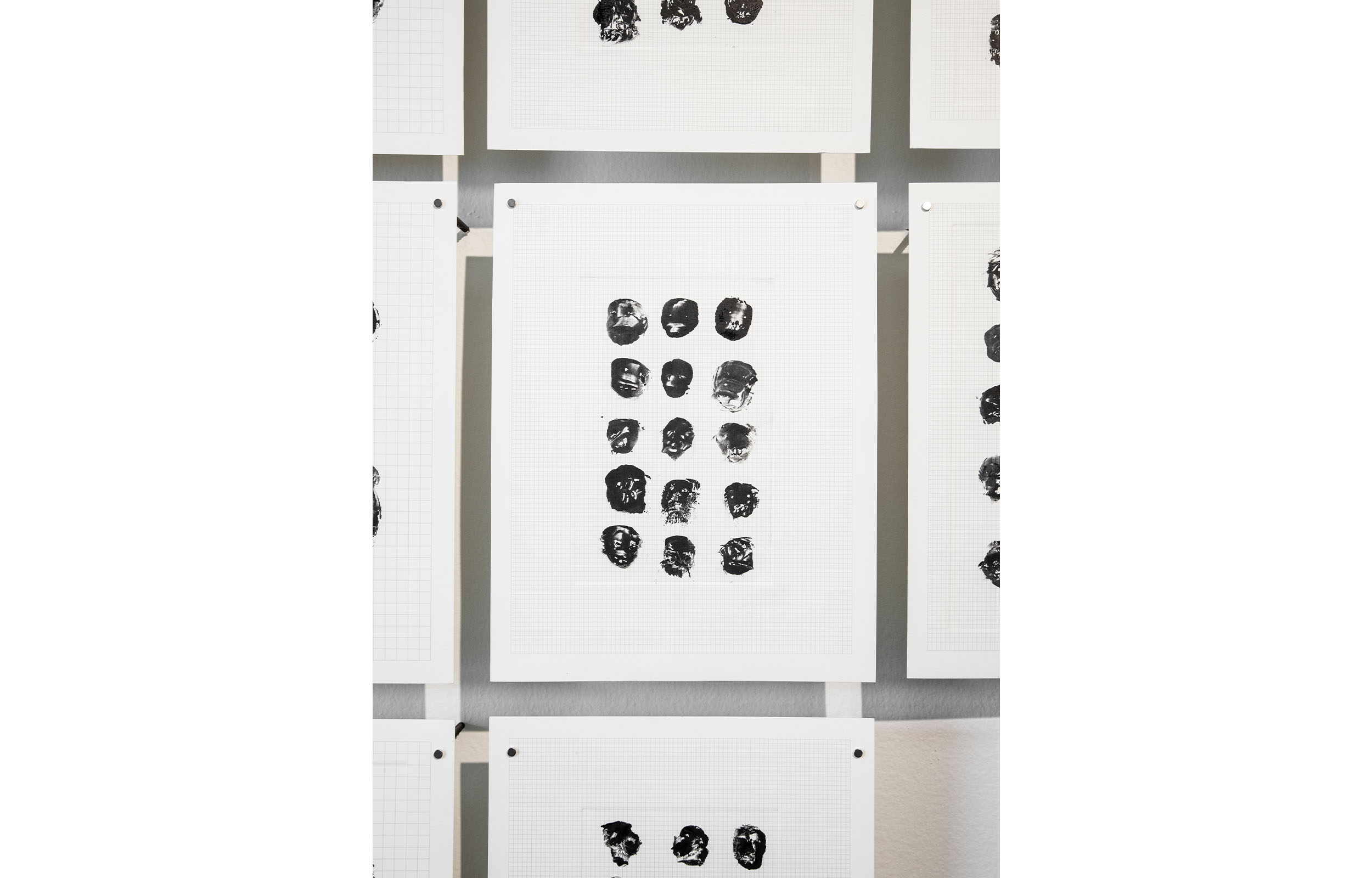
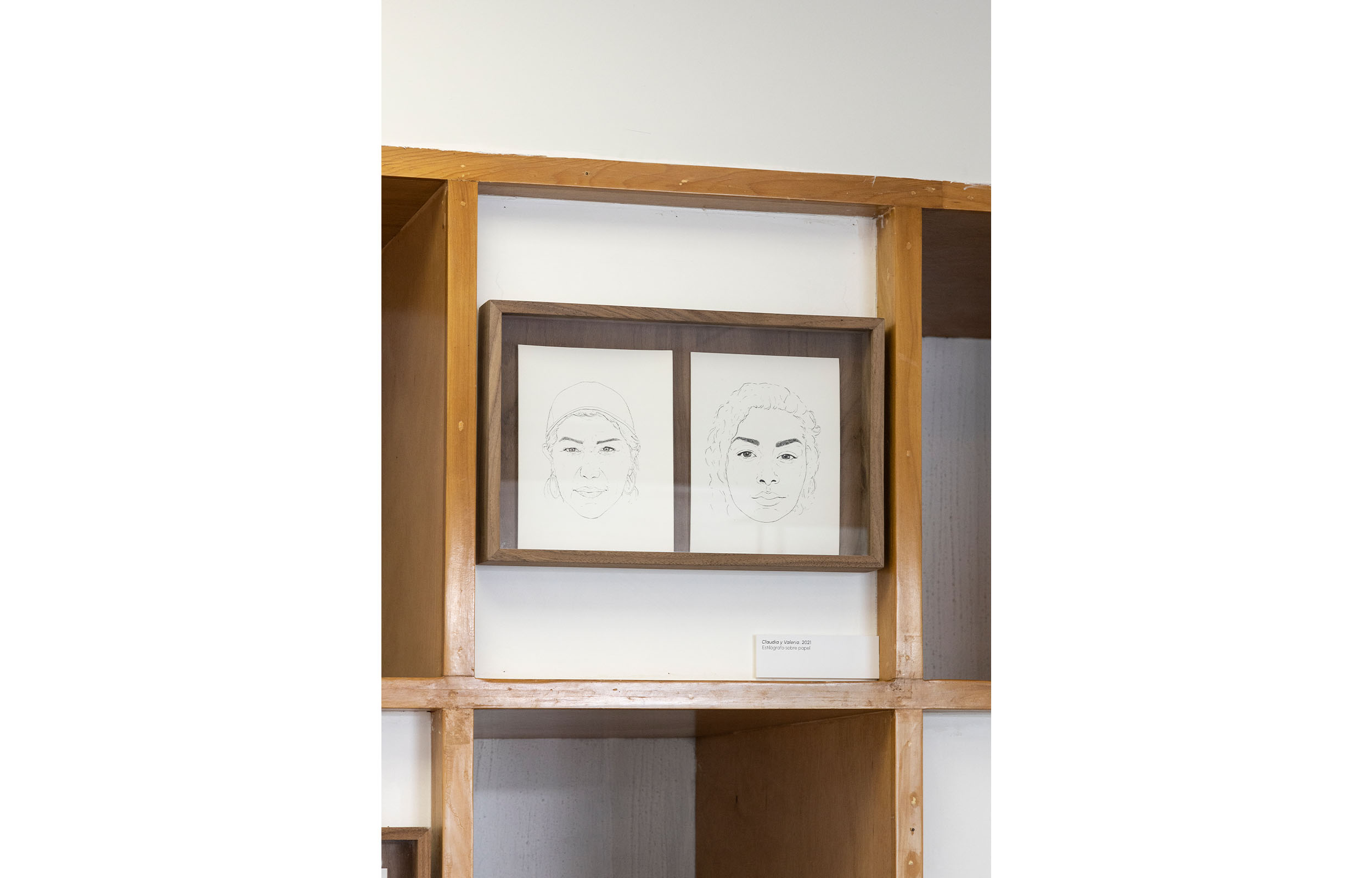
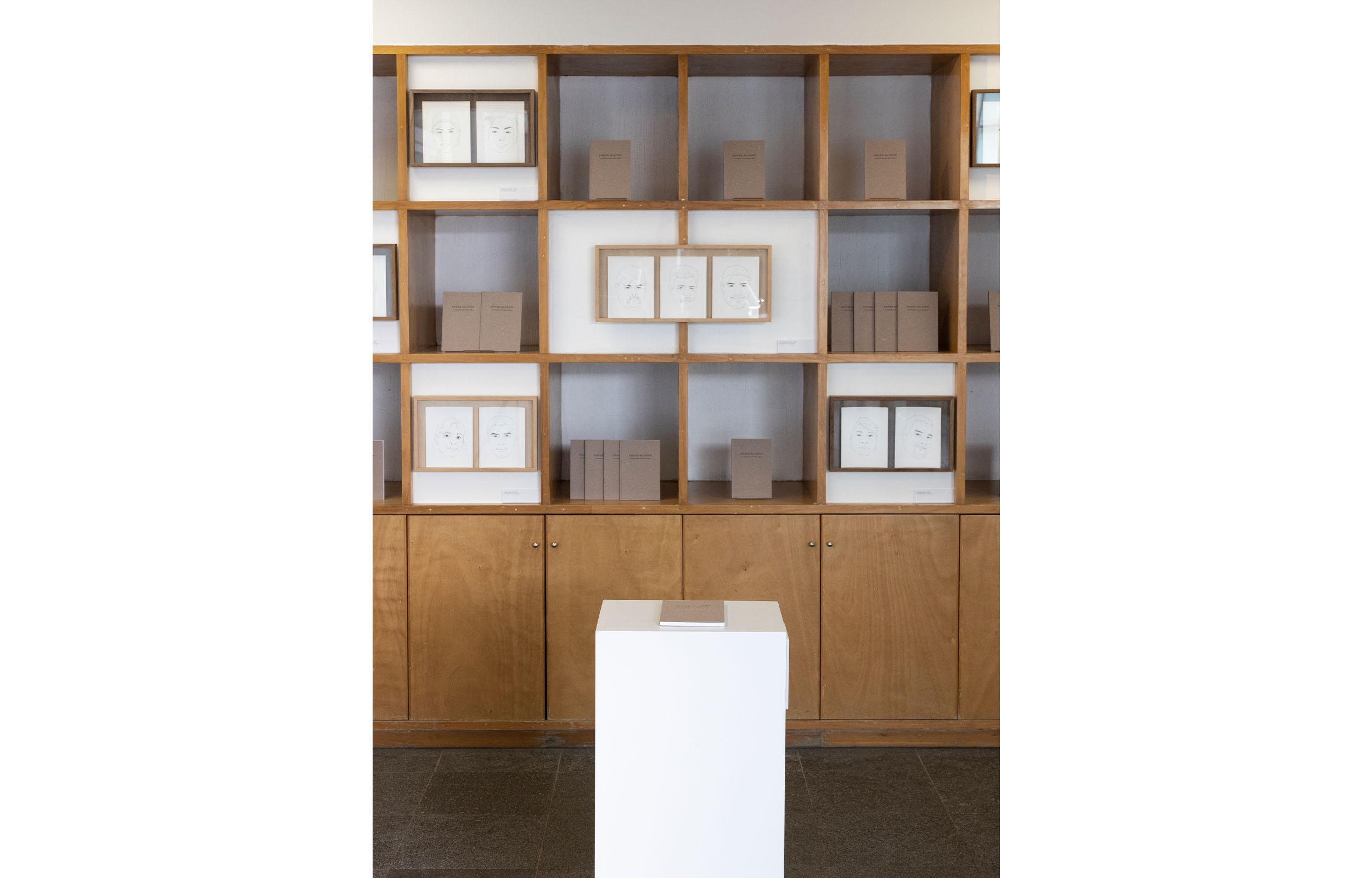
Soft Power – Stories of Search | Miriam Hernández
From November 26, 2022 to April 16, 2023
Biombo
Curator: Mónica Ashida
Sala de lectura
“That’s an idea which may make some people smile, but the only means of fighting a plague is―common decency.”
Albert Camus, The Plague
In May of 2022 the United Nations issued a statement to express its deep concern regarding the more than one hundred thousand enforced disappearances officially registered in Mexico. Several months before, the UN’s Committee on Enforced Disappearances had visited Mexico and issued a statement about this tragic situation, declaring that “enforced disappearance in Mexico is a problem for everyone, the entire society, and all humanity as a whole.”
Enforced disappearances continue to increase, in spite of international condemnation and the efforts of friends and relatives of the victims, of non-profit organizations, and of certain governmental bodies. They constitute an alarming chronic pattern which, given its magnitude and persisting impunity, seems impossible to eradicate.
This situation has generated a social crisis that forces us to take a stance. In the face of these circumstances, we can deny the facts and take refuge in egoism, looking the other way, or we can face them with courage and solidarity, putting to the test our capacity as human beings to confront the irrationality of tragedy. In the face of horror, we human beings find ourselves at a crossroads: we can flee from it or we can confront it with the very best of ourselves.
Miriam Rodríguez has taken the second path, placing her own concerns and artistic resources at the service of this cause. For years now she has devoted herself tirelessly to the task of searching for disappeared persons and of supporting a non-profit organization, Familias Unidas por Nuestros Desaparecidos Jalisco (Families United for Our Disappeared [Loved Ones] Jalisco, known by its Spanish-language acronym FUNDEJ), made up of mothers and fathers, wives and husbands, sons and daughters, and sisters and brothers of people who have disappeared in the state of Jalisco.
Soft Power – Stories of Search documents this long process of accompaniment. The title appropriates a term coined in 1990 by Joseph Nye, a professor at Harvard University, which refers to the ability to influence others’ behavior through cultural or ideological means in order to achieve the results one desires. Although the term was originally employed in the context of international relations, Nye later acknowledged the importance of action by individuals in producing changes to social structures.
Guadalupe Aguilar, the founder of FUNDEJ, is an example of the exercise of soft power. Her heroic efforts constitute a motivation and a guide to all of us. The disappearance of her son led her radically to change her life and to devote it entirely to searching for him. This tragic event and her encounter with others who have found themselves in the same dire circumstances taught her that the only way of surviving the situation is through solidarity, through walking the path together, sharing what she has learned and learning from others. “You are not alone” is the phrase with which she welcomes people who join her in the search for their loved ones, immediately creating a network of fraternity and understanding.
The struggles facing the collective are enormous and unfair, but members never lose sight of the fact that those performing the actual searches as part of their regular employment are also people. Their efforts to accompany official institutions in the search for disappeared persons have led to them train themselves in forensic techniques, to learn to register discoveries, to know a little about DNA, but also to understand how these tools can be used to demand results and ensure that things be done properly and in a timely fashion. They have learned to fight, to raise their voices when they have to, and to show empathy when necessary.
One of the actions that most surprised me is how they take meals to those working in the SEMEFO (the department of forensic medical services) to track down their family members, as a way of thanking them for their efforts but also of softening their hearts, in an effort to get them to commit to doing their work as it needs to be done. It seemed to me unjust that they had to offer this show of recognition for something that should be granted them as a right. I was also appalled to see that this attitude is sometimes misinterpreted as blackmail or victimization. I understand it as an act of compassion, as a humanizing strategy.
The astonishing number of enforced disappearances and a widespread pattern of impunity have normalized a state of violence, turning victims into mere statistics, stripping them of every trace of humanity, taking away their names, faces, families, and ties with the people who miss them. Restoring a human quality to all those involved in these unspeakable events is a duty for all of us. A thirst for justice and a glimmer of hope make it possible for the members of FUNDEJ to pursue their goals with dignity, to tell this horrifying story, which continues to repeat itself, owing to silence and apathy.
The aim of this exhibition is to help to reverse these effects and to pay homage to lives that have been senselessly lost, thanks to the generous testimonies of this collective: people who will never rest until their loved ones are found, who will never stop loving them, and who show us that feelings and emotions are also integral components of the exercise of human and political rights.
Collaborating on this task, Miriam Rodríguez finds herself in the world of activism and community organization, without abandoning the world of art. It is an endeavor that allows her to close the gap between art and life, to adopt and accompany the aim of effecting social change, without forgetting her commitment to the families that opened up their private lives to her.
The pieces on exhibit here speak of a collective practice that prioritizes the defense of ―and demand for― human rights. They reflect a search for practical solutions rather than the personality cult of the artist, in the hope that, in the course of time, the wider community may appropriate the project and, through the exercise of soft power (perhaps the only power we have), mount an effective challenge to the social and political powers that be.
Mónica Ashida Cueto
